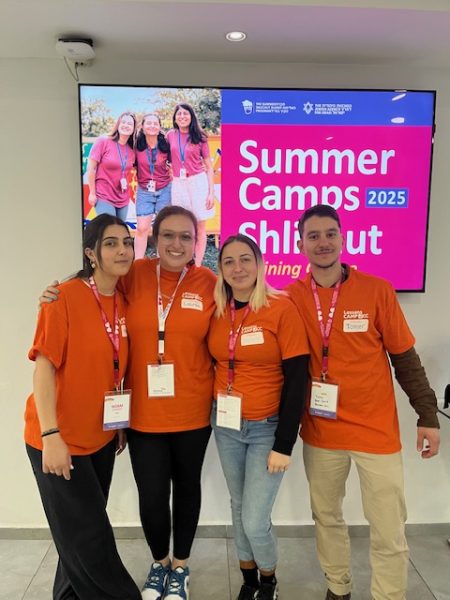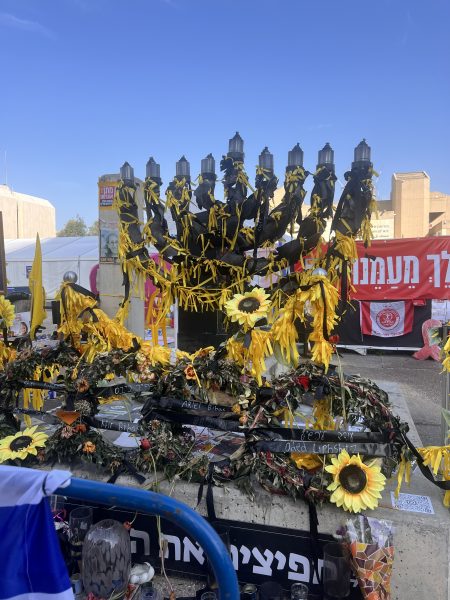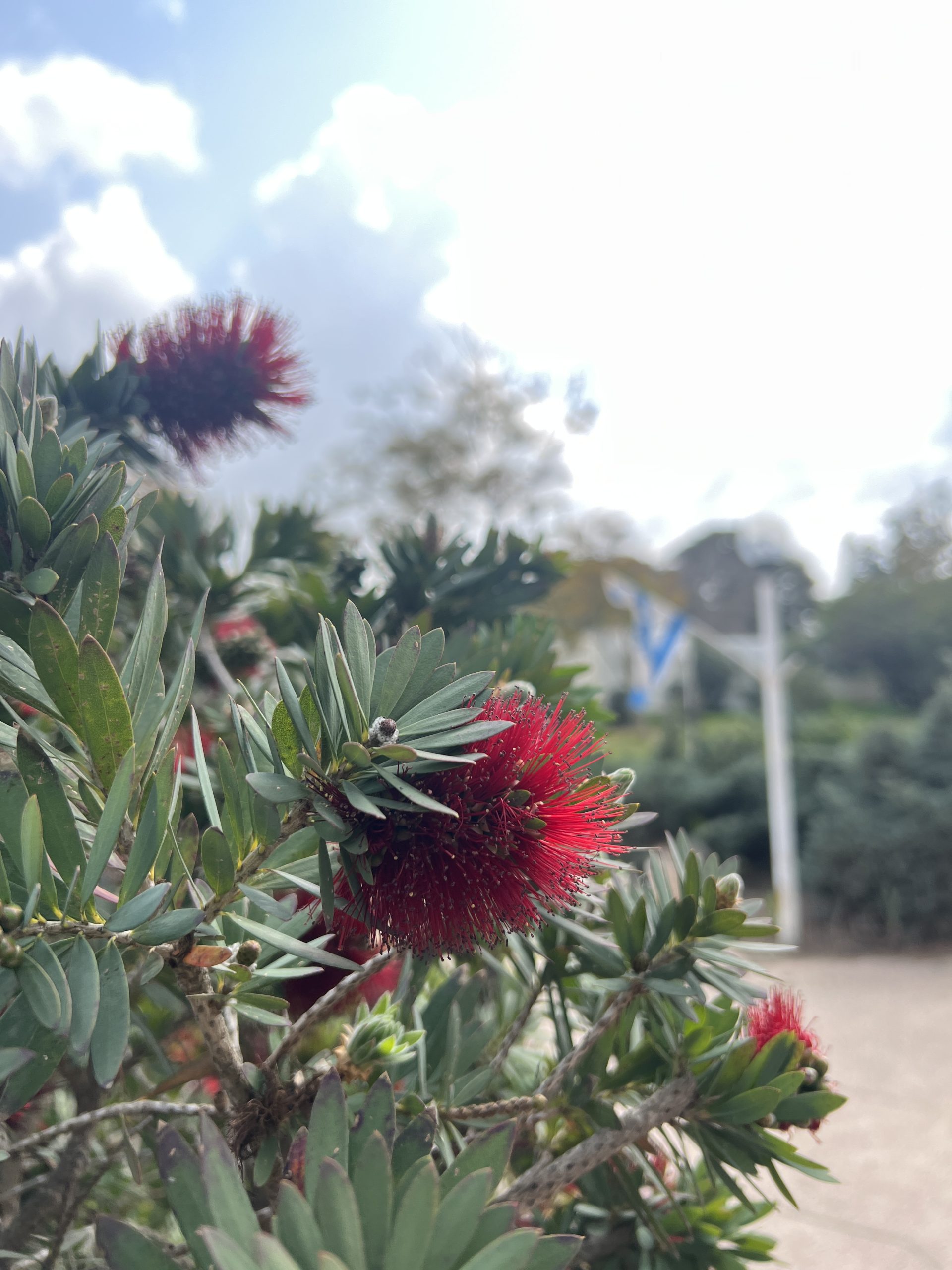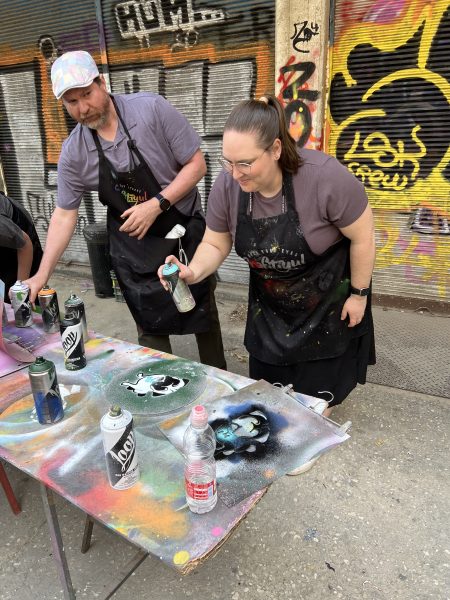Each summer, the Jewish Agency for Israel (JAFI) sends thousands of young Israelis, most of whom have completed their military service, to Jewish summer camps across North America as shlichim (emissaries). To help prepare them for this crucial role, JAFI leads a three-day training seminar in Israel for the shlichim and encourages camp professionals to attend. Among other things, the seminar lets professionals get to know their shlichim before the camp season and set expectations around the young people’s summer responsibilities. It also addresses numerous key topics, including the dynamics of North American Jewish life, the unique environment of Jewish camps, and the vital role shlichim play as staff members and in the wider camp community.
To encourage day camp professionals to attend this year’s training, JCC Association of North America partnered with Jewish Day Camp Network (JDCN) to offer Israel B’Yom, a three-day travel opportunity in Israel before the JAFI training. Designed to provide a balanced, well-rounded view of the politics, culture, architecture, history, and current events of Israel, all in a short timeframe, Israel B’Yom deepened participants’ connections to the Jewish homeland and offered insights into how best to support and encourage Israeli programming at camp. For these professionals, many visiting the Jewish homeland for only the first or second time, the training altered their view of the JCC Movement and its relationship to Israel.
Sydney Bickford, the youth and camp coordinator at the New Orleans JCC in Louisiana, did not have a personal relationship with Israel prior to this trip, and the opportunity to see the country before meeting the shlichim influenced her greatly. “I was able to gain an understanding of the community,” she says, “and why it is so important to foster this relationship in camp.”
The Israel B’Yom training really solidified the idea that the JCC Movement is committed to making sure that campers have access to quality Israel education,” reflected Raeann Cronebach, camp director at the JCC of Greater Columbus in Ohio. Katelyn Graves, camp director at Jewish for Good at the Levin JCC in Durham, North Carolina, agrees. The trip, she says, “deepened my appreciation for the JCC Movement’s commitment to fostering meaningful, real-time connections with Israel. It reminded me that our work at Camp Shelanu isn’t just about programming—it’s about people, identity, and shared purpose across borders.”
Lauren Gottfried, associate director of the Bender JCC of Greater Washington in Rockville, Maryland, appreciated spending time in Jerusalem’s Old City with JCC Association staff. “It was amazing to hear their stories and perspectives and also to have a personal moment.” She also valued the opportunity to brainstorm with fellow directors—and the input provided by the trip’s leaders—about how to bring more of Israel to camp.
Meeting and spending time with the shlichim ahead of the camp season is a key aspect of helping JCC professionals ensure success throughout. Cronebach, a first timer in Israel and at the training, noted that in the past, the process included Zoom interviews and a few emails before the shlichim arrived—struggling with jetlag and the language barrier—just in time for staff training and the summer but with few opportunities to connect with camp leaders. Now, she says:
I can’t imagine not sending someone in the future. Attending the training, I [could] address many of the[ir] questions, [and] tak[ing] time to sit down with them, get to know them, and talk in person will be crucial to their success this summer. This opportunity will let them focus on the programming they’ll be doing rather than worry as much about acclimating and adjusting to camp.
“It was important to meet the shlichim before camp,” says Bickford, noting that the gathering gave her a chance to share what makes her camp special and get them excited to come to New Orleans. It also offered an opportunity to set expectations and introduce camp procedures, which will help the shlichim acclimate to the summer routine. Graves concurs: “Meeting the shlichim face-to-face in Israel was incredibly valuable. It allowed me to build real rapport and better understand their personalities, strengths, and areas where they might need support.” Like Bickford, she got a head start in team building and setting clear expectations before the intense summer season. What’s more, Graves said, she learned how truly intentional and reciprocal the relationship is with the shlichim. “Not only do we bring a piece of Israel to our camps, but we also immerse ourselves in Israeli life, culture, and people.”
Gottfried echoes those sentiments. “Being in Israel with the shlichim,” she says, “helped me better understand where they are coming from, what knowledge they already have, and how I can best help their transition to camp this summer.” Getting to know the candidates in their own environment before they arrive in the U.S. and are out of their comfort zone was a wonderful opportunity, she added.
Lastly, everyone learned something in Israel that will strengthen campers’ connections to Israel and foster deeper cultural exchange and understanding. For Graves, it was how to integrate Israeli culture into camp in organic, hands-on, authentic ways, weaving Israel meaningfully into daily routines, conversations, and camper experiences. “I left with fresh ideas,” she says, “like incorporating Hebrew phrases into cheers and planning collaborative activities during which shlichim can share personal stories.”
Gottfried learned that many shlichim bring a range of camp experiences with them and how to explain life at her own camp, from the basics to what makes it truly unique. “The training shift[ed] my perspective,” she says, “to be…aware of places where our Israelis might need more information and patience.”
For Cronebach, it was “so hard to pick just one thing…” Although she previously had been of little help in Israel education at camp, now, she says, “I have a better understanding of the country and culture to…support our staff in their programming, which will allow for a better experience for our campers.” She suggests, too, that it would be great for JCC Association to encourage CEOs and other executive leaders to place importance on this program. As for Bickford, she loved all the dancing throughout the program, and says, “I hope our shlichim will bring their dancing shoes and teach us all!”
Looking for a camp where Jewish values, community, and connection to Israel come to life? Explore our network of JCC day and overnight camps across North America.



